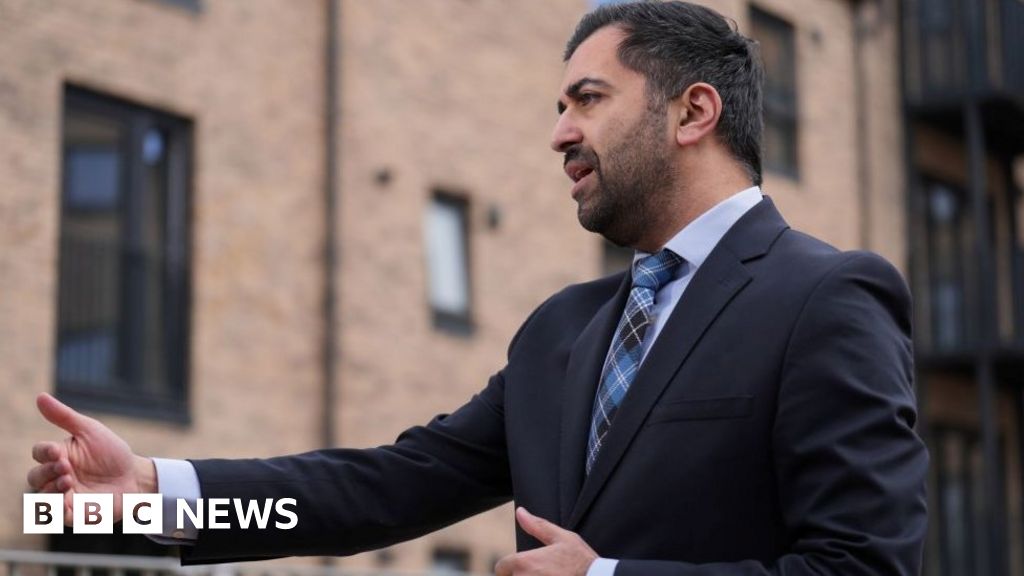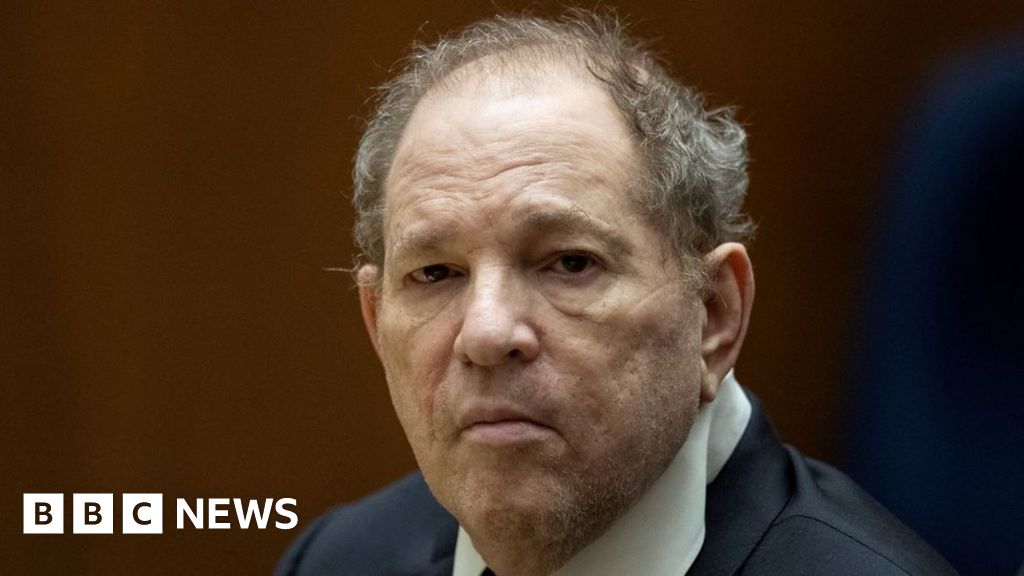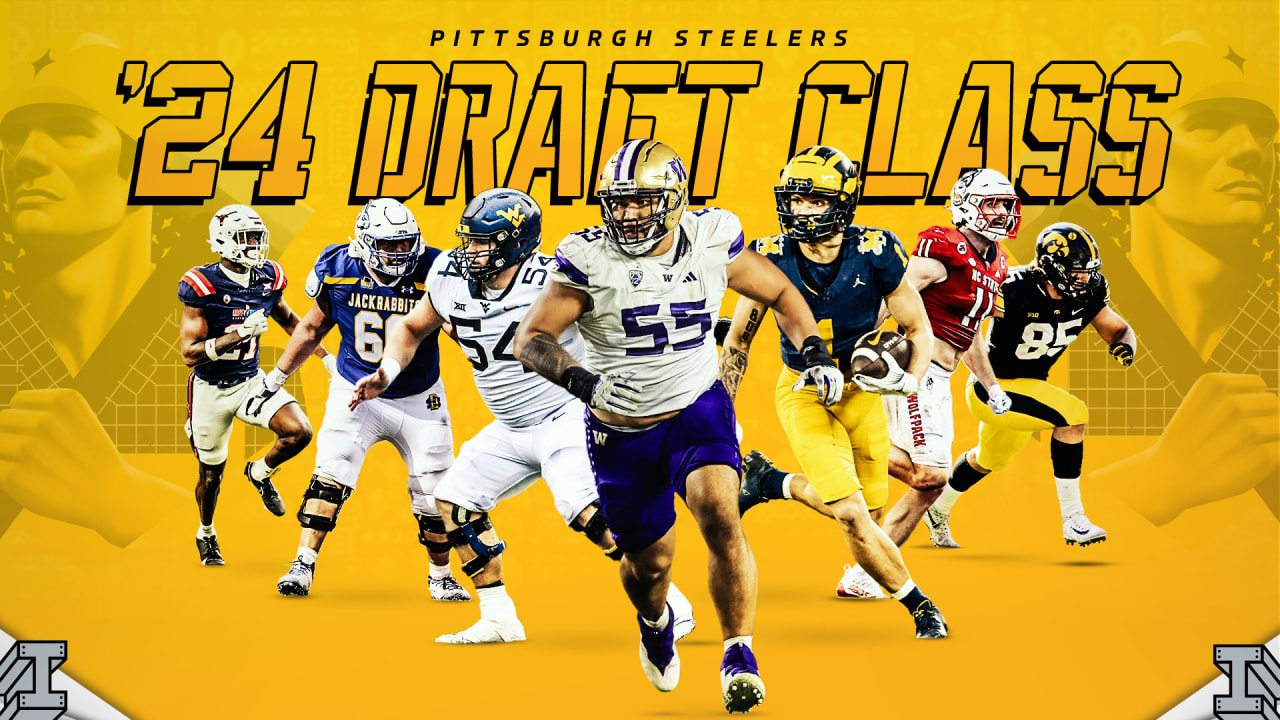Look, we get it.
The Baseball Hall of Fame is a breathtaking idea. It’s a celebration. It’s a history lesson. It’s a pilgrimage. The museum in Cooperstown is home to heroes and memories and the posters on our walls. The very notion can fill a fan with wonder, and actually being there feels like going to church, and the Louvre, and Game 7 of the World Series, all at once.
And so, we care a great deal about who gets in and who does not. Passion and debate come with the territory. In press boxes and clubhouses and postgame hotel bars, we debate these decisions among ourselves. We get it.
You’re not going to agree with all of our ballots. You’re not supposed to. This process is built around people with different opinions coming to an overwhelming consensus without establishing a definitive answer to what makes a Hall of Famer.
This year, I’m serving as president of the Baseball Writers’ Association of America, and I’m confident that the vast majority of my colleagues view Hall of Fame voting as one of the great privileges and responsibilities of the job. It’s an honor to play a role in the process. It takes 10 years of BBWAA membership to become a Hall of Fame voter, and last year 389 ballots were submitted. It takes a 75 percent majority for a player to be elected. Each ballot, therefore, is a tiny piece — a little more than one-quarter of 1 percent — of the final product. We all have our say, but no one person tips the scales. The process is built on differing opinions.
Here, we’ve collected some of the ballots — and some of the internal thinking — of many of The Athletic’s Hall of Fame voters. As you can see, we disagree even among ourselves. That’s the way it’s supposed to work. — Chad Jennings
Daniel Barbarisi’s ballot
Carlos Beltrán, Adrián Beltré, Todd Helton, Andruw Jones, Joe Mauer, Billy Wagner
Looking at Mauer’s career numbers in aggregate — .306/.388/.439, 143 homers, 428 doubles, amassed over 923 games at catcher, 603 at first base, 310 at DH — it strikes me that he is one of those odd cases where the whole isn’t actually greater than the sum of its parts. The whole is excellent in its own right — those are good numbers. They’re even Hall of Fame numbers, with the right context. But they don’t fully do justice to the individual pieces that comprise it, those superlative seasons early in his career that couldn’t possibly have come from a man playing his position.
Remember what a unicorn he was? Back when he was hitting .328 and .347 and then finally .363 as a catcher, with respectable-to-excellent slugging through that whole period. Mauer and the obviously dissimilar stolen base threat Jason Kendall are always paired up a bit in my mind because they both reside in the neighborhood of “Guys who do things catchers aren’t supposed to do.”
And then he stopped doing so many of those things, and stopped being a catcher really at all, and without that all-important context for a while it felt like everybody had been robbed of watching something special; Mauer at first base was a pale imitation. Safe to say we didn’t understand head injuries well enough then, certainly still don’t, but it’s hard not to wonder how long he could have kept up that brilliant production from the catcher’s spot if injuries hadn’t been an issue.
Grading on a curve when it comes to injuries is tricky — who’s to say what this or that player could have been if it were not for some injury or another, and so it’s cleaner just to say what they actually were. But in Mauer’s case, that’s clear: a special hitter and excellent defensive catcher and pitch framer whose numbers put him among the very best to ever play a demanding position. To me, that’s an easy vote. My semi-informed guess is that Mauer doesn’t get in this year, but hopefully his time is coming soon, if only for a chance to remember how high the highs were.
GO DEEPER
Twins great Joe Mauer on the cusp of Hall of Fame with surprising support
Daniel Brown’s ballot
Carlos Beltrán, Adrián Beltré, Todd Helton, Andruw Jones, Joe Mauer, Manny Ramirez, Alex Rodriguez, Gary Sheffield, Chase Utley, Billy Wagner
As a fan of the Hall of Fame Tracker operated by Ryan Thibodaux (aka @NotMrTibbs on X), I’ve seen how his followers hate “drops” — voting for a player one year but not the next. The justifiably snarky joke is, “I guess (candidate) had a terrible year.” Har-har. For the record, I plan on voting for Bobby Abreu again next year, as he ranks 21st all-time in JAWS among right fielders, sandwiched between Hall of Famers Dave Winfield (20th) and Vladimir Guerrero (22nd). But I dropped Abreu this year as part of some strategic voting. There are players who need every checked box they can get to clear the 75 percent threshold (Sheffield, Wagner) and others who need to generate momentum as their years on the ballot wane. I surprised myself by voting so enthusiastically for Utley, but his JAWS ranks 12th all-time among second basemen and his WAR-7 (the sum of a player’s seven best WAR seasons) trails only Rodriguez among players on the ballot this year.
Steve Buckley’s ballot
Carlos Beltrán, Adrián Beltré, Todd Helton, Andruw Jones, Joe Mauer, Andy Pettitte, Gary Sheffield, Billy Wagner
The early returns suggest Beltrán won’t be getting into the Hall of Fame this year. That’s the bad news for those of us who believe he belongs in Cooperstown. The good news? He’ll likely get the call in the next two, three or four years. And he darned well better get that call, or else I’m going to be setting a world record for being a broken record.
As I wrote last year, and will do so again next year, Beltrán has already been punished for his role in the 2017 Houston Astros sign-stealing scandal. And the punishment was a whopper: Hired later to manage the New York Mets, he never even made it to spring training. When the sign-stealing verdict came in, Beltrán was out as manager of the Mets.
A.J. Hinch, former Astros manager, sat out during a one-year suspension and then was hired to manage the Detroit Tigers. Alex Cora, the former Astros bench coach who in 2018 managed the Red Sox to a World Series championship, also was handed a one-year suspension after he had already stepped away as Boston’s manager via one of those mutual-parting-of-ways deals.
But Red Sox upper management was practically in tears after making the announcement, all but telegraphing that Cora would be back in 2021. Which is exactly what happened.
Fair enough. Hinch and Cora paid dearly, even if, OK, their punishment was sitting out the 2020 pandemic season. By whatever means one measures their culpability and the ensuing punishments, they should have been invited to return.
And yet here’s Beltrán, stuck in Fly Creek — which is my way of saying he’s just outside of Cooperstown. (Fly Creek, N.Y., is only a few miles from Cooperstown.)
Admittedly, we could remove the cheating scandal from the discussion and Beltrán would not be a Willie Mays-like Hall of Fame lock. But he combined power (435 home runs) with speed (312 stolen bases), won three Gold Glove awards, had 70.1 career WAR according to Baseball Reference (identical to Hall of Famers Gary Carter and Scott Rolen), and … let’s stop there because, again, it’s not stats that are keeping Beltrán out of the Hall. It’s bats, or whatever the Astros were using when they banged on trash barrels to pass along the other teams’ signals.
A year ago, I characterized the Astros’ sign-stealing caper as something you might have expected in a 1930s “Little Rascals” short but not in big-league baseball. This year I’m breaking up the routine by suggesting it was something you might have seen in a 1930s Marx Brothers movie, only with Harpo squeezing some kind of horn to relay the signals, and actor Edgar Kennedy as MLB commissioner Rob Manfred doing a slow burn after discovering the scheme. Now unless your name is Ben Mankiewicz of Turner Classic Movies, you probably have no idea what I’m talking about. But that’s the entire point: What the Astros did was something out of old-timey Hollywood slapstick, and it cheapened the game.
Beltrán paid a price for that. He shouldn’t have to pay for the rest of his life.
Marc Carig’s ballot
Carlos Beltrán, Adrián Beltré, Todd Helton, Andruw Jones, Joe Mauer, Gary Sheffield, Billy Wagner
My holdovers from last year include Sheffield, Beltrán, Jones, Helton, and Wagner, the ahead-of-his-time strikeout machine. Both Mauer and Beltré got my vote in their first year of eligibility. Beltré’s inclusion is about as clear-cut as it gets. And upon reflection so was Mauer’s. Though injury forced him to first base for the end of his career, Mauer dominated during his prime as a catcher. He racked up six All-Star appearances, three batting titles and an American League MVP — feats made more impressive because he did this all while still toiling behind the dish.
Not on the list for now: Chase Utley. With 1,885 hits, Utley finished short of the 2,000-hit mark that serves as a bit of an unofficial threshold for entry into Cooperstown. He also didn’t rack up the accolades (Gold Gloves, MVPs, etc.) that you’d expect from a Hall of Famer. That said, Utley’s career arc was atypical. Also, his peak seasons at second base were awfully impressive. Utley was just short of inclusion. Of course, I once felt that way about Jones, Helton and Wagner.
Over time, I reconsidered. I suspect that one day this might also be the case with Utley.
Two candidacies I am unlikely to reconsider: Alex Rodriguez and Manny Ramirez. While other players have been the subject of whispers and speculation regarding steroid use, I put Rodriguez and Ramirez in a distinct category. Both served multiple suspensions for violating the league’s performance-enhancing drugs policy, and both ran afoul of those rules after the sport’s reckoning with PEDs. In my mind, this is different from mere whispers and speculation, or even being named in a report.
Chad Jennings’ ballot
Bobby Abreu, Carlos Beltrán, Adrián Beltré, Todd Helton, Andruw Jones, Joe Mauer, Gary Sheffield, Chase Utley, Billy Wagner, David Wright
As a general rule, my Hall of Fame voting tends toward peak over longevity. Jones has always been an easy choice for me, and in the past I thought long and hard about Cliff Lee before deciding the peak was just too short to check his box. That personal preference probably explains much of my ballot this time around.
With research, Mauer became an easier choice than even I expected, and my real-time belief that Utley was a Hall of Famer was only reinforced looking back at his 10-year run of excellence. I covered Utley in Triple A in 2003 and ’04, but I shouldn’t have. He lost two years on the front end of his career because the Phillies inexplicably would not commit to him. His career numbers should speak for themselves more than they do.
Wright, though, was a hard one. His career was just so much shorter than the usual Hall of Fame standard. I left an open spot on my ballot for a week, reading, researching and asking friends for advice before I finally checked the box after seeing Thibodaux’s excellent Hall of Fame tracker had Wright far too close to falling off the ballot (if he received less than 5 percent of the vote). As with Abreu, I can’t say with absolute certainty that Wright belongs in Cooperstown, but I’m confident his inclusion would not diminish the Hall of Fame. For nine years, he was an essential part of the game, and he spent much of the next decade trying like hell to return from a back injury that just wouldn’t let up. When I take my sons to Cooperstown, I won’t hesitate to tell them his story alongside so many others who have been enshrined.
GO DEEPER
Stark: One-and-done? No! Why David Wright deserves a long look on the Hall ballot
David O’Brien’s ballot
Carlos Beltrán, Adrián Beltré, Todd Helton, Andruw Jones, Joe Mauer, Chase Utley, Billy Wagner
When I checked a few days into January, there were four candidates named on at least 80 percent of writers’ Hall of Fame ballots that had been revealed, according to the tracker that Thibodaux and his staff update — Beltré, Helton, Mauer and Wagner, in that order.
I voted for each of those four along with Jones (10 consecutive Gold Gloves while averaging 34 homers and 103 RBIs per season from 1998-2007), Beltrán and Utley.
This will be my 30th year covering MLB as a beat writer, and I saw each of these players in his prime. That’s not to say I know more than any others who vote or more than attentive fans. But I know which players I saw who looked like future Hall of Famers, and by weighing my observations with copious statistics available on every player and also considering many discussions with players, coaches and managers about whom they believe to be Hall of Famers, I think I have a pretty good handle on which players are Cooperstown-worthy.
I do, however, have a stronger anti-performance-enhancing drugs stance than some voters, and that’s caused the most difficult situation of my time as a voter: leaving Gary Sheffield off my ballot. To be clear, I covered Sheffield as a beat writer both when he played for the Marlins and the Braves, and I rank him with Chipper Jones and Freddie Freeman as the greatest hitters on any teams I’ve covered in my career. (Ronald Acuña Jr. will move into that group if he keeps up his current career pace, and perhaps surpass them all.)
Sheffield has tremendous stats — first-ballot Hall stats — and I believe he would’ve been a Hall of Famer without PEDs. I also tend to believe him when he says that his use of steroid creams and whatnot while working out with Barry Bonds was more a dalliance — he says it was by accident, which I do find hard to believe — than the deep dive into PEDs that I’m convinced Bonds, Roger Clemens, Alex Rodriguez and others took. But the fact that Sheffield was connected to PEDs in a report is enough to make me not vote for him, and he’ll likely fall short of 75 percent this year in his 10th and final year on the ballot.
As much as I liked covering him and admired him as a player, I kept him off my ballot each year because if I made an exception for Sheffield, I can’t justify not doing so for some others. Then I’d also get caught up in weighing evidence and timelines and whether a player tested positive or used before or after MLB cracked down on PEDs. Fact is, using steroids without a prescription was illegal in the United States well before baseball created stiff penalties for it. Players always knew it was wrong to use them, that it was cheating, or else they would’ve done so openly. If they didn’t know it was cheating, they should have.
Banging on trash cans as part of a team-wide sign-stealing scandal is one thing; Beltrán was great for nearly two decades before that 2017 season when the Astros cheated during home games of his age-40 season, the last and worst year of his career. He’s also paid a price, getting fired by the Mets before he’d managed even one game. But changing one’s actual body composition through banned substances, adding massive amounts of muscle early or midway through a career — or late in one’s career when it would normally be in decline — is another thing entirely.
It allowed Bonds, already a great player before steroids, to become an otherworldly offensive machine from his mid-30s through age 42, and to rewrite and completely distort the record books, setting artificially enhanced marks that blew away many once-hallowed records, and making most career and single-season power-hitting standards all but meaningless, since most of those records will never be broken. That’s just wrong, and steroid enhancement should not be rewarded with a Hall of Fame vote.
PED-implicated players are featured throughout the Hall of Fame in Cooperstown because it’s a museum and they were part of the game. And that’s fine. But it doesn’t mean they should have a bronze bust there.
C. Trent Rosecrans’ ballot
Carlos Beltrán, Adrián Beltré, Todd Helton, Andruw Jones, Joe Mauer, Manny Ramirez, Alex Rodriguez, Gary Sheffield, Chase Utley, Billy Wagner
This is my 10th Hall of Fame ballot as a voter, a significant number for a pair of reasons:
• Ten is the number of years it takes as an active BBWAA member to earn a Hall vote, which means I’ve been a member and voting as long as I was a member and not voting. That means I’m old. But it also means I’ve done this a time or two and I’ve more or less settled on a philosophy. On my first ballot, in 2015, I thought about trying to guess how others were voting and worried about the bottom of the ballot. That approach would mean I wouldn’t vote for no-doubt Hall of Famers Pedro Martinez and Randy Johnson. The thought of not voting for them shaped my theory, which brings us to the other reason 10 is important …
• The rule of 10. The Hall of Fame limits voters to 10 selections per ballot. This is not a BBWAA rule, but a Hall of Fame rule. As a group, the BBWAA has asked to either take away the governor or increase the limit. Both requests were denied by the Hall of Fame. That means the rule of 10 stands and it has been a major factor in all 10 of my ballots.
So, with all that said, sorry Bobby Abreu. I believe Abreu is a Hall of Famer. I voted for him last year and in a perfect world, I’d have voted for him before (and after) then.
Alas, there are just 10 spots. The process I’ve settled on is to rank the players and draw a line at 10. I don’t necessarily vote for all 10, but all those who pass that imaginary Hall of Fame line, whether it is after two or 15, get (or would get, if there were no rule of 10) a check mark.
And so here we are. I’m not exactly sure where the Hall threshold should be, but I know Abreu is above the line and he’s No. 11 on my list, so no check mark.
Like when voting for MVP, it seems like the bottom of the list is more difficult than the top (well, once you make a decision on PEDs — my belief is all that I know is what happened on the field and the numbers reflect that. While I know some players used PEDs, I don’t know if their competitors did. In the end, MLB still counts the games they played in and their results. So, yeah, Rodriguez was the best player in the game; he gets a check from me, as does Ramirez, like Bonds and Clemens before them).
Anyway, there’s a strange line between Wagner — No. 10 on my list — and Abreu. It’s nearly impossible to compare a reliever and an outfielder, but that’s the exercise and in the end, there’s a leap of faith in my head that puts Wagner just ahead of Abreu, so Wagner gets a check and Abreu doesn’t. Yes, relievers and outfielders are apples and oranges, but the assignment is to compare apples, oranges, watermelons, grapes and the rest of the fruits. If neither player is elected this year, both should be on the ballot next year and it’s possible both get a check a year from now or neither do. That’s not because their careers have changed, but because the competition has. The Hall of Fame can stop this and employ the Binary Ballot (I’m not sure if Derrick Goold of the St. Louis Post-Dispatch has trademarked the idea of a simple yes/no vote for all players, but he should), but they haven’t yet and I don’t expect them to in the future.
That’s where we are today, as I make my (left-handed) check marks on a piece of white paper.
You can read all sorts of explainers on why a player deserves one of these check marks, and all are valid. I respect many points of view, but in the end, I lean on the theory that I am a voter, not a selector. I vote and I’d rather vote for someone worthy than not vote for someone worthy. Sadly, the rule of 10 takes that out of my hands. So, yeah, I’m sorry Bobby.
Eno Sarris’ ballot
Bobby Abreu, Carlos Beltrán, Adrián Beltré, Todd Helton, Andruw Jones, Joe Mauer, Gary Sheffield, Chase Utley, Billy Wagner
In a sure-to-fail attempt at brevity, instead of addressing each of my votes, I thought I’d just bullet point the general thought process that begat the selections.
• I believe in being at least as inclusive as we’ve been for previous generations. We’ve voted in fewer and fewer players as a percentage of the whole with every passing decade — down from 2 percent to 3 percent of the whole to around 1.5 percent, as Mike Petriello showed on MLB.com in 2020 — and no matter what you think of the modern game and its training methods, it doesn’t sit right with me to think that players are worse now.
• I believe that before MLB had a testing policy in place in the 2004 season, league leadership was complicit in the steroid issue (the commissioner of the era, Bud Selig, is in the Hall of Fame, and that seems significant), and I’m more lenient toward players in that bucket. After testing was in place, players knew the stakes, and the numbers that I use to judge them are in question.
• I believe in wins above replacement as a framework because it’s unique in its ability to bring together all facets of the game into one number. I also consult Jay Jaffe’s JAWS system because it considers the relationship between a player’s peak abilities and their longevity. I don’t believe batting average or hits (alone) are of outsized importance within the context of all the things a player can do, and stats like RBIs and runs are typically influenced by the team’s situation.
• That said, I believe in offensive stats over defensive stats, since the former have been proven to be more reflective of true talent and the latter have only recently begun improving rapidly. A player like Jimmy Rollins — who was, by some measures, below average with the bat compared to the league when he was in it — has to have all-time elite defense to get my vote.
• I believe league trends in player usage are pushing us away from the volume that used to give players the chance to rack up the traditional benchmarks. A starting pitcher without 250 wins, a position player without 2,000 hits — I’m just not sure these things bother me as much as they might have bothered other members of the electorate in the past.
• I believe that relievers should be compared to relievers. In overall production, relievers pale against their counterparts. But if we ignore the position because of that fact, we dismiss a whole class of players who are currently throwing around half the innings in a given season.
• I believe that a player can be an elite accumulator. Consider someone like Abreu, who, as some people rightly point out, was never a top-five player in the league — in one season. But by being so consistently excellent from 1998 to 2004, he was actually the fifth-best player over that time frame. Posting matters.
Well, so much for being concise. I tried!
Keith Law’s ballot: Carlos Beltrán, Adrián Beltré, Todd Helton, Andruw Jones, Alex Rodriguez, Gary Sheffield, Chase Utley
Hall of Fame ballot columns from The Athletic
• Rosenthal: Why Jimmy Rollins and Chase Utley are both on my Hall of Fame ballot
• Kepner: Explaining my Hall of Fame ballot — a celebration of greatness
Note: Jayson Stark’s ballot column will be published next week.
More Hall of Fame coverage
GO DEEPER
A distinguished dozen: Saluting the 12 newcomers to the Baseball Hall of Fame ballot
GO DEEPER
Jim Leyland, Hall of Fame manager: 4 things we learned from the Contemporary Era election
GO DEEPER
Smoky hotel rooms, 10-minute tirades and fatherly advice: Jim Leyland’s managerial multitudes
(Top image photos: Joe Mauer: Larry Goren / ICON SMI / Corbis/ Getty Images; Adrián Beltré: Jeff Gross / Getty Images; Carlos Beltrán: George Gojkovich / Getty Images)

Daniel Miller is a sports fanatic who lives and breathes athletics. His coverage spans from major league championships to local sports events, delivering up-to-the-minute updates and in-depth analysis for sports enthusiasts.








